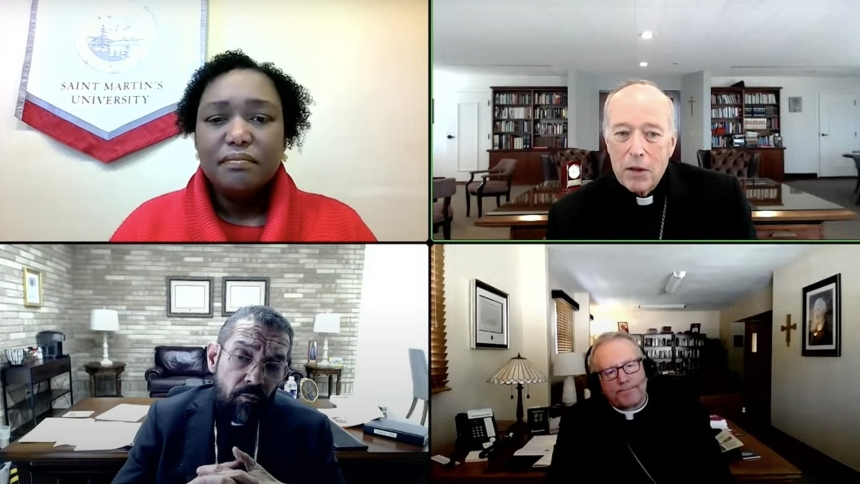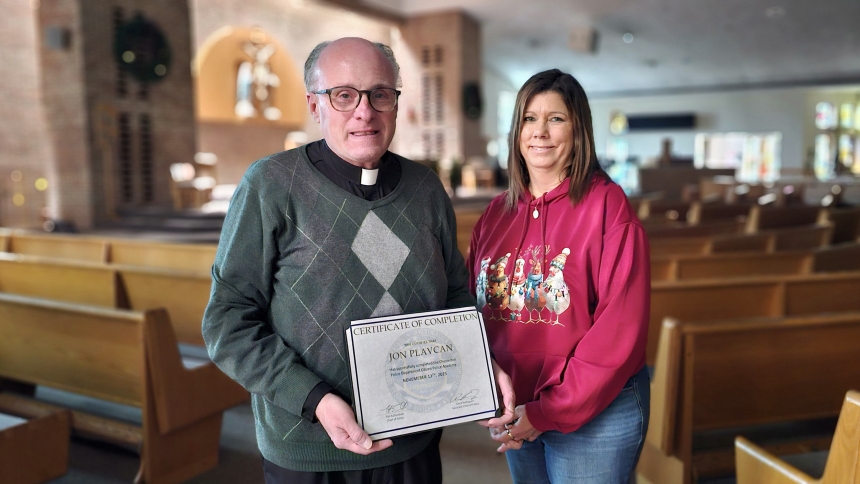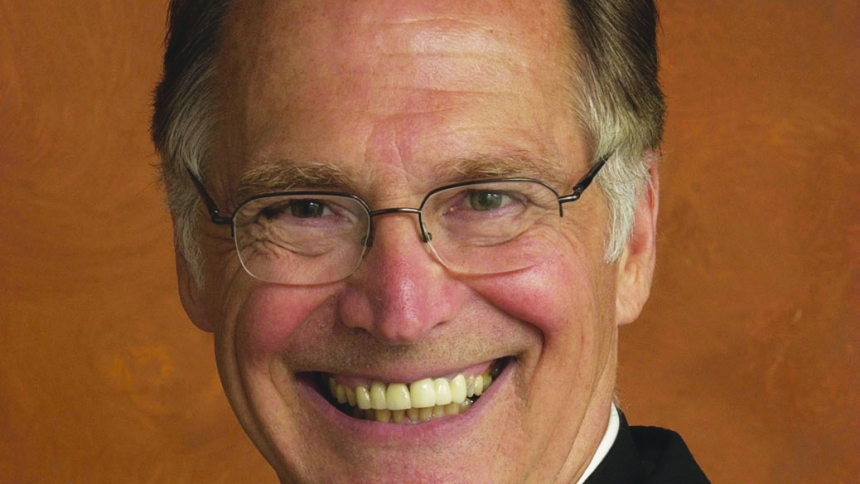
WASHINGTON (OSV News) - Voting is an act of conscience and should be discerned as such, panelists said at a May 14 webinar organized by the U.S. bishops' conference and other Catholic groups.
Although neither the church nor its officials endorse particular candidates for public office, the bishops' teaching document "Forming Consciences for Faithful Citizenship" is meant to advise Catholic voters on how to apply church teaching to the decisions they make in the ballot box.
The panel discussion was moderated by Gloria Purvis, Catholic speaker and host of "The Gloria Purvis Podcast" from America Media, with speakers Cardinal Robert W. McElroy of San Diego, Bishop Robert E. Barron of Winona-Rochester, Minnesota, and Bishop Daniel E. Flores of Brownsville, Texas. Participants acknowledged tension between Catholic priorities and the current structure of the two-party system in the U.S. in which neither candidate nor party fully lines up with church teaching.
For example, Joe Biden, who is the nation's second Catholic president, has called for increased access to abortion, while Donald Trump has taken hard-line positions on immigration and backs expanding the use of capital punishment, which the church teaches is morally impermissible in the modern world.
Cardinal McElroy said, "I think it's important for all of us to understand Catholic social teaching bisects our current party structure."
"And so for every, every believing Catholic voting is an act of conscience, and an act of citizenship and an act of faith," Cardinal McElroy said. "But it's one that we should not be going to with a sense of victory but a sense of always understanding that in our voting, we are conflicted. … We vote because we know that no one encapsulates even the bulk of what the church calls us to be and do and work in our society."
Bishop Flores said, "I think our first responsibility is to kind of always be engaged in the political process, and not just ... in an election time."
"Sometimes it even happens that the party we wanted to win wins and then we kind of let it go because well, they're in charge now," he continued. "So we will win, but we don't admit the fact that no party, as Cardinal said, is going to completely hold on to the convictions that we hold as Catholics, and that we need to even resist the party we are in favor of when they are promoting something that we know in conscience we cannot support; and sometimes we don't do that because we kind of want to give them a free pass."
Catholics, he said, are called to "promote the good," including when their own party falls short of that call.
Citing St. Thomas Aquinas, Bishop Barron said that "love means to will the good of the other," but too often in a polarized society "we become tribalistic."
"We forget that (quote)," he said. "And now it becomes simply a matter of winning an argument or, you know, waving the flag of my tribe as opposed to all of us together endeavoring to learn the truth."
The webinar was part of the U.S. Catholic bishops' "Civilize It" initiative, which seeks to foster "a better kind of politics, one truly at the service of the common good," a nod to Pope Francis' encyclical on human fraternity, "Fratelli Tutti." The webinar was co-sponsored by the U.S. Conference of Catholic Bishops, Catholic Charities USA, Glenmary Home Missioners and the Jesuit Conference.
Caption: Gloria Purvis of America Media moderates the conversation during "Civilize It: Unifying a Divided Church," a virtual event sponsored by the U.S. Conference of Catholic Bishops May 14, 2024. Participants include Cardinal Robert W. McElroy of San Diego, top right; Bishop Daniel E. Flores of Brownsville, Texas, bottom left; and Bishop Robert E. Barron of Winona-Rochester, Minn., bottom right. (OSV News screenshot/USCCB)


